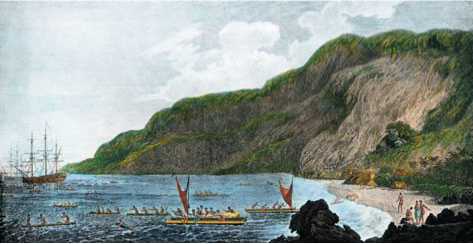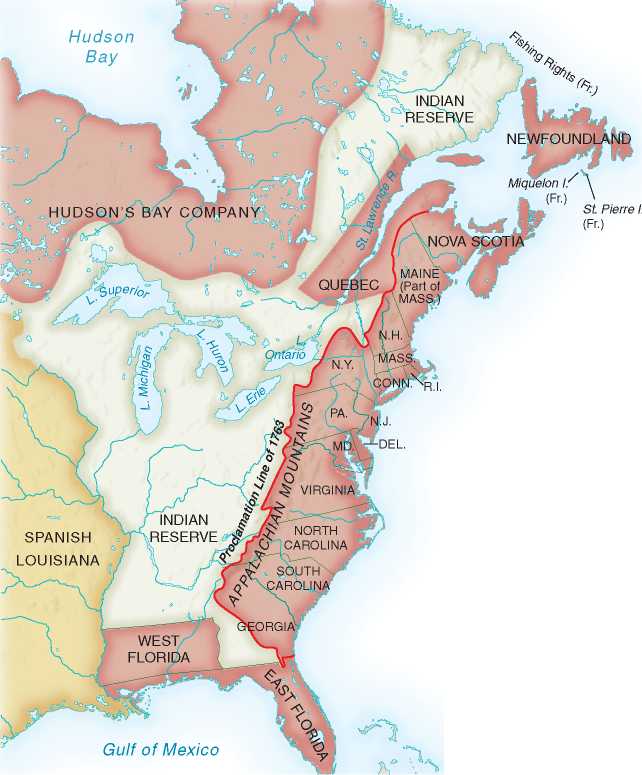The attempt of the inefficient, ignorant, and indignant British government to deal with the intricate colonial problems that resulted from the great war for the empire led to the American Revolution. Trouble

Captain James Cook, perhaps the most accomplished mariner of the eighteenth century, here sails into Kealakekua Bay, where he was killed by natives. This painting is perhaps the first rendering of a surfer in Hawaii.

A modern windsurfer at Kealakekua Bay.

ATLANTIC
OCEAN
I I British claims
I I Spanish claims
Indian Reserve
Proclamation of 1763 Although France ceded nearly all of New France to Great Britain In 1763, that same year King George III proclaimed that colonists would not be allowed to move into "British territory" west of the Appalachians. These lands were to be reserved for Indians.
Began when the British decided after the French and Indian War to intervene more actively in American affairs. Theoretically the colonies were entirely subordinate to Crown and Parliament; yet except for the disastrous attempt to centralize control of the colonies in the 1680s, they had been allowed a remarkable degree of freedom to manage their own affairs. They had come to expect this as their right.
Parliament had never attempted to tax American colonists. “Compelling the colonies to pay money without their consent would be rather like raising contributions in an enemy’s country than taxing Englishmen for their own benefit,” Benjamin Franklin wrote. Sir Robert Walpole, initiator of the policy of salutary neglect, recognized the colonial viewpoint. He responded to a suggestion that Parliament tax the colonies by saying, “I will leave that for some of my successors, who may have more courage than I have.” Nevertheless, the legality of parliamentary taxation, or of other parliamentary intervention in colonial affairs, had not been seriously contested. During King George’s War and again during the French and Indian War many British officials in America suggested that Parliament tax the colonies.
Despite the peace treaty of 1763, the American colonies continued to be a drain on the British treasury. Mostly this was due to the cost of fighting Indians. Freed of the restraint posed by French competition, Englishmen and colonists increased their pressure on the Indians. Fur traders cheated them outrageously, while callous military men hoped to exterminate them like vermin. One British officer expressed the wish that they could be hunted down with dogs.
Led by an Ottawa chief named Pontiac, the tribes made one last effort to drive the whites back across the mountains. What the whites called Pontiac’s “Rebellion” caused much havoc, but it failed. By 1764 most of the western tribes had





 World History
World History









